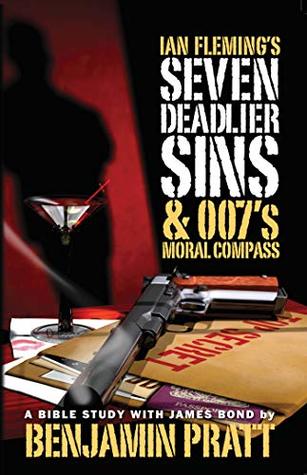Kindle Notes & Highlights
Read between
February 18 - March 5, 2025
If you are not facing down Demons – you’re not truly alive. —Maya Angelou
One keyhole through which I glimpsed that truth is a seven-letter word derived from Greek. I was startled to discover that the word shows up in nearly every Fleming tale: accidie. Why does this word appear so often? It’s usually well placed as a description of the motivation of the most evil opponents of Bond—as well as a description of 007 himself, when he is bored between the demands of his mission-driven life. Accidie, it turns out, is one of the original seven deadly sins that was defined in the Middle Ages by its symptoms: sloth and torpor. Accidie comes from the Greek akedos, which
...more
This highlight has been truncated due to consecutive passage length restrictions.
In a bold statement in this Foreword, Fleming turns the traditional seven deadly sins on their heads by proclaiming they are closer to virtues than the sins he observes in our time. He even proceeds to describe the ancient sins as virtues of the specific persons who had written each of the essays. For example, he praised the Pride of Dame Edith Sitwell and the Covetousness of Cyril Connolly. He compared Gluttony with the tremendous zest for life of Patrick Leigh-Fermor. And Lust? Fleming hoped that he and Christopher Sykes would long remain lustful in their lives.
Fleming argues that most of these ancient sins will no longer keep one out of Heaven—except for one especially troubling sin: accidie. For Fleming, accidie or sloth could never be considered a virtue.
Here is how Fleming enumerates the modern sins that definitely will lead to Hell: Avarice, Cruelty, Snobbery, Hypocrisy, Self-righteousness, Moral Cowardice and Malice.
He is a complex sinner who often acts as a saint. Fleming is asking us to consider: Can good and evil be embodied in one and the same person?
Fleming’s modern twist is that, in addition to confronting the Devil in these seven deadly forms, Bond must confront the same evils in himself.
When we lose our passion and joy for life, we may have slipped into the spiritual condition known as accidie.
I described the sin of accidie using the words of St. John of Damascus: … a sorrowfulness so weighing down the mind that there is no good it likes to do. It has attached to it as its inseparable comrade, a distress and a weariness of soul, and a sluggishness in all good works which plunges the whole person into a lazy languor and works in him or her a constant, slow, lazy bitterness.
I want to make it very clear that we are not talking about the kind of morbid depression that is the result of physical or mental illness. I am describing a spiritual condition. I am speaking of the moods that come over normally healthy Christian persons, moods that we are tempted to indulge rather than resist.
It is not a sin that it comes to us. It is a sin that we fail to resist this mood.
The sacrifice acceptable to God is a broken spirit, not a cynical spirit, not a bitter spirit.
In its fullest meaning, accidie refers to the loss of joy or faith in the goodness of life or the goodness of God.
Accidie is the evil of indifference and boredom. It leaves one passionless, apathetic and with no spice for life.
Forgiveness is a form of grieving because forgiveness is giving up the hope of a different past.
Bond has a choice. Does he succumb to his own accidie or accept the impossible job of slaying the dragon of Despair?
James Bond tales are parables about the war waged against the noxious criminal elements of this earth, but they are also, secondly, a personal spiritual war against the forces of evil. The first type of war that Bond encounters is before him intermittently, but the second type of battle is always before him—and always before us, twenty-four seven.
War is filled with passion. Passion focuses the sense of mission. When one is passionless and bored and without the sharp focus of mission, one suffers boredom, even the spiritual flatness and emptiness of accidie.
Terrorism is spiritually rooted in self-righteousness. Behind the eyes of the terrorist is a vision of the world that tolerates no other vision—to the point that all other perceptions of the world must be obliterated at any cost. Terrorists think in absolutes. They are purists.
At its core, he knew, snobbery is racism, classism and elitism. It does not ask about what you believe, what you have done, or what you will do with your life.
Snobbery isn’t a quaint issue from the past; it’s an intense issue people are wrestling with today.
The author suggests that snobbery is when you look down on those who do not share your conservative worldview. Curiously, he overlooks the snobbery of looking down on those who do not share your liberal worldview.
Blofeld was born in Gdynia of a Polish father and a Greek mother on May 28, 1908, the same day as his creator, Ian Fleming. More than any other demon in Bond’s life, Blofeld also embodies the evil of accidie that plagued both Bond and Fleming.


